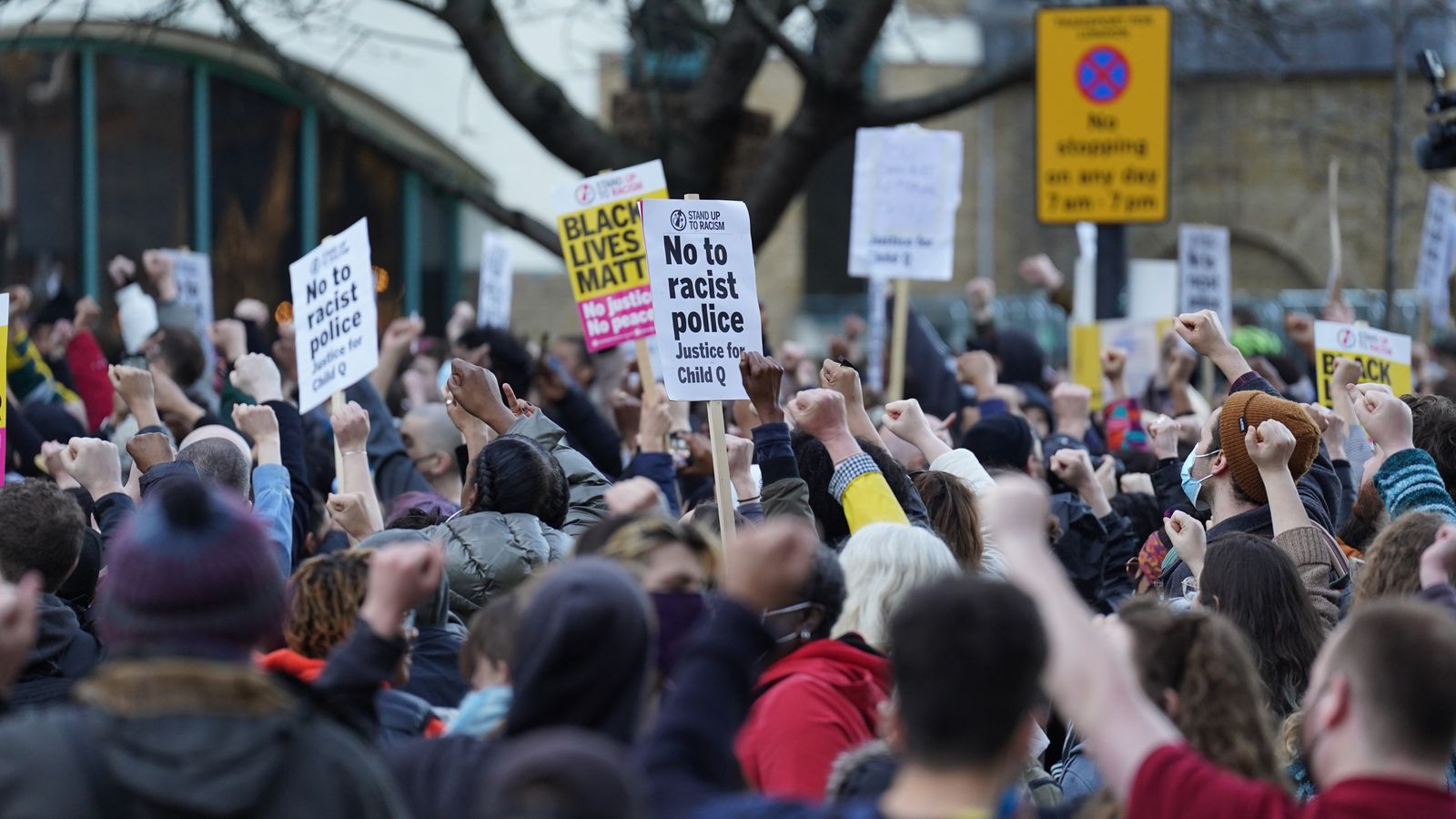Police forces in England and Wales have been asked to provide data on how many children have undergone “intrusive and traumatic” strip-searches by officers since 2018.
Dame Rachel de Souza, the Children’s Commissioner, has written to all forces requesting the information after discovering 650 10- to 17-year-olds were strip-searched by the Metropolitan Police over a two-year period.
She requested the figures from the force in the wake of the Child Q scandal, where a black 15-year-old schoolgirl was strip-searched while on her period after being wrongly suspected of carrying cannabis at school.
The figures showed in almost a quarter (23%) of cases, strip-searches took place without an “appropriate adult” present. They also showed that black boys were disproportionately searched.
Dame Rachel said on Friday she is seeking further information from other police forces between 2018 and July 2022 “to reassure myself that these issues are not more widespread”.
She said: “I firmly believe that a police power that is as intrusive and traumatic for children as a strip-search must be treated with the utmost care and responsibility.
“It must also be accompanied by a robust and transparent system of scrutiny to protect and safeguard vulnerable children.”
Analysis of the data will be published in full early next year, she added.
Dame Rachel has met with new Metropolitan Police Commissioner Sir Mark Rowley, and is said to be “working constructively” with him.
The case of Child Q drew outrage when it first came to light in March this year, and sparked protests.
The teenager was strip-searched by female Met Police officers in 2020 without another adult present and in the knowledge that she was menstruating, a safeguarding report found.
Officers under investigation
The review, by City & Hackney Safeguarding Children Partnership (CHSCP), concluded the strip-search should never have happened, was unjustified and racism “was likely to have been an influencing factor”.
According to the report, the impact on the secondary school pupil was “profound” and the repercussions “obvious and ongoing”.
Family members described her as changing from a “happy-go-lucky girl to a timid recluse that hardly speaks”, who now self-harms and needs therapy.
Four Met Police officers are being investigated for gross misconduct by the Independent Office for Police Conduct (IOPC) in connection with the incident.
Scotland Yard has apologised and said it “should never have happened”.
A Met Police spokesperson said: “Ensuring the safeguarding of every child who is subject to a search is an absolute priority. We got it wrong with Child Q and we are making significant efforts to ensure our approach puts the child at the heart of decision-making.
“We have been listening to our communities and partners and have made changes as we balance the policing need for this type of search with the considerable impact it can have on young people.
“We will be happy to cooperate fully with the children’s commissioner and to share the progress we are making in this area.”
The National Police Chiefs’ Council said: “Police have an important role in ensuring the safety of young and vulnerable people. It is vital that any police interaction is handled sensitively, and that when an officer considers it necessary to search a child that it is carried out in line with policy. In rare circumstances when a more thorough search is necessary, additional safeguards are in place. On all but exceptional occasions, such as an immediate risk of harm to the young person, this will involve the presence of an appropriate adult which is catered for under The Codes of Practice.”
It added: “We acknowledge this letter from the children’s commissioner. Each chief constable takes this issue very seriously and will respond accordingly. As ever, we welcome the opportunity to continue working with all our partners, including the children’s commissioner, in order to understand their detailed findings and to help implement positive change wherever it is required.”












